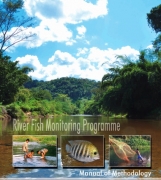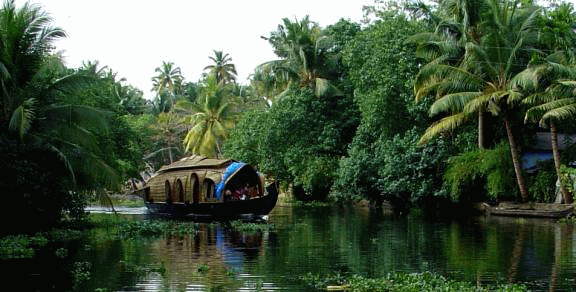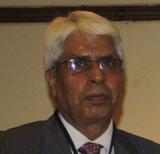Fisheries
Economics of River Flows - A book by Dr.Bharat Jhunjhunwala
Posted on 09 Aug, 2010 06:06 PMThis book is essential reading for economists, power sector officials, power generation companies and environmentalists alike.
Dr.Bharat Jhunjhumwala holds a BSc degree in physics, chemistry and mathematics. He earned his PhD in food and Resource Economics from University of Florida at a tender age of 23 years. He joined Indian institute of management, Bangalore as Assistant professor immediately thereafter. He lived in a slum for two years to understand poverty and organized the Trade Union at IIM during the Emergency. He resigned from the IIM and became a consultant to donor agencies like Swiss Development Cooperation, Oxfam, Care, Overseas Development Institute and others mainly on rural development and watershed issues. He writes a column on economic issues for about 50 newspapers in india. He lives on the banks of River Alaknanda in uttarakhand on the feet of Lord Badri Vishal.
Inland fishery in a traditionally vegetarian state: A Gujarat story by CAREWATER
Posted on 07 Aug, 2010 08:12 PMInland culture fisheries in village tanks and ponds - A multi-location study in India - CAREWATER
Posted on 07 Aug, 2010 03:53 PM This multi-location study by
This multi-location study by
River Fish Monitoring Programme - Manual of Methodology by Kerala State Biodiversity Board
Posted on 07 Jun, 2010 03:33 PM Measurement of riverine biota, particularly benthic macroinvertebrates (such as crustaceans and aquatic insects) and fish, has become a widely accepted method of identifying the structural or functional integrity and the overall health of a riverine system. This manual from the Kerala State Biodiversity Board (KSBB), describes in detail the field procedures to be followed in such fish monitoring/measurement surveys, conducted for riverine ecological systems.
Measurement of riverine biota, particularly benthic macroinvertebrates (such as crustaceans and aquatic insects) and fish, has become a widely accepted method of identifying the structural or functional integrity and the overall health of a riverine system. This manual from the Kerala State Biodiversity Board (KSBB), describes in detail the field procedures to be followed in such fish monitoring/measurement surveys, conducted for riverine ecological systems.
KSBB has taken up this manual publication effort, in the conxtet of a state-wide fish monitoring programme, that aims to survey all the 44 rivers of Kerala with the involvement of resource persons from local colleges, research institutes, experts and fisherpeople community.
Vembanad Fish Count - Report of the Participatory Fish Resources Surveys of Vembanad Lake (Kerala) done in 2008 and 2009 by ATREE
Posted on 03 Jun, 2010 06:23 PM The Vembanad estuarine system, the largest of its kind on the west coast of India is known to be abundantly enriched with diverse fishery resources, providing feeding, spawning and rearing areas for a very large proportion of commercial (fin) fish and shellfish. However, ecosystem health of the Vembanad wetlands is alarmingly declining due to a variety of reasons - obstruction of river courses, sand mining & habitat destruction, loss of riparian canopy cover, encroachment, pollution and unethical fishing practices. Reduced summer flow due to drying up of rivers and pollution hazards from agro-chemicals and sewage also lead to mass mortality of fishes. Depletion of fishery resources has changed this ‘inland fish basket’ to an ‘inland wastebasket’, driving the fisherfolk, the primary stakeholders of the lake into a livelihood crisis.
The Vembanad estuarine system, the largest of its kind on the west coast of India is known to be abundantly enriched with diverse fishery resources, providing feeding, spawning and rearing areas for a very large proportion of commercial (fin) fish and shellfish. However, ecosystem health of the Vembanad wetlands is alarmingly declining due to a variety of reasons - obstruction of river courses, sand mining & habitat destruction, loss of riparian canopy cover, encroachment, pollution and unethical fishing practices. Reduced summer flow due to drying up of rivers and pollution hazards from agro-chemicals and sewage also lead to mass mortality of fishes. Depletion of fishery resources has changed this ‘inland fish basket’ to an ‘inland wastebasket’, driving the fisherfolk, the primary stakeholders of the lake into a livelihood crisis.
State of fisheries in the Gangetic basin
Posted on 10 Dec, 2009 03:51 PMInland fisheries form an integral part of the vast gangetic basin.
Speakers and presentations at the IWMI : Bharat Sharma speaks on the use of GIS for estimating basin level water productivity
Posted on 07 Dec, 2009 02:25 AM

References of the impact of climate change on river deltas and other coastal areas
Posted on 26 Aug, 2009 04:48 PMMumbai Marooned: An Enquiry into Mumbai Floods 2005 - Final Report ,
By Conservation Action Trust - Click here
Enquiry-mumbai-floods-2005-final-report
Impact of climate change on river deltas and other coastal areas in India
Posted on 26 Aug, 2009 04:23 PMThe effects are most visible in the Sunderbans. Literally the 'beautiful forest', these wetlands at the mouths of the Ganga and Brahmaputra river systems are among the largest mangrove forests in the world. About 62% of this area of some10000sq km lies in Bangladesh but there is a significant Indian portion in the state of West Bengal.
Impact of climate change on water resources
Posted on 26 Aug, 2009 02:30 PMIndia has contributed immensely to the body of scientific research and analysis that underpins the understanding of the global impacts of climate change. There is, to a slightly lesser degree, an understanding of specific regional impacts. More needs to be done here, especially understinding micro-level impacts.




